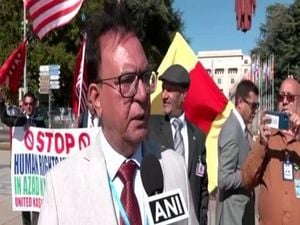On August 20, 2025, the political landscape in India was shaken when Union Home Minister Amit Shah introduced the Constitution (130th Amendment) Bill, 2025, in the Lok Sabha. The bill, which proposes to amend Article 75 of the Indian Constitution, sets forth a legal framework for removing any central or state minister—including the Prime Minister, Union Ministers, Chief Ministers, and State or Union Territory Ministers—if they are arrested and detained for at least 30 days on charges that carry a minimum imprisonment of five years. The move, which the government claims is a step towards accountability and clean governance, has sparked fierce opposition and ignited a nationwide debate about the future of Indian democracy.
The most vocal criticism has come from West Bengal Chief Minister and Trinamool Congress (TMC) supremo Mamata Banerjee. In a series of impassioned statements on social media and public forums, Banerjee condemned the bill as “something more than a super-Emergency” and a “Hitlerian assault on the very soul of Indian democracy,” according to reports from Deccan Chronicle and PTI. She argued that the bill represents a death knell for democracy and federalism in India, warning that it could mark the end of the democratic era in the country.
“I condemn the 130th Constitutional Amendment Bill, proposed to be tabled by the Government of India today. I condemn it as a step towards something that is more than a super-Emergency, a step to end the democratic era of India forever. This draconian step comes as a death knell for democracy and federalism in India,” Banerjee posted on X, formerly known as Twitter. Her words were echoed across party lines, resonating with opposition leaders and activists who fear the bill’s implications.
Banerjee’s concerns are multifaceted. She accused the central government of attempting to suppress the voting rights of Indian citizens under the guise of the Special Intensive Revision (SIR), describing the measure as “another super-draconian step by the Centre.” In her view, the bill is designed not only to target opposition leaders but also to undermine the independence of the judiciary. “This Bill now wants to finish the Independence of our Judiciary. What we are witnessing is unprecedented – the Bill is nothing short of a Hitlerian assault on the very soul of Indian democracy. The Bill seeks to strip the judiciary of its Constitutional role – to take away the power of Courts to adjudicate on matters that lie at the very heart of justice and federal balance,” she stated, as reported by Deccan Chronicle.
According to Banerjee, the bill threatens the basic structure of the Constitution, including federalism, separation of powers, and judicial review—principles that even Parliament cannot override. She warned, “If allowed to pass, it will be a death warrant for Constitutional governance in India. We must resist this dangerous overreach.” Banerjee further cautioned that the bill empowers unelected authorities such as the Enforcement Directorate (ED) and the Central Bureau of Investigation (CBI)—which the Supreme Court has previously described as “caged parrots”—to interfere in the functioning of elected state governments. “It is a step to empower the Prime Minister and the Union Home Minister in a sinister manner at the expense of the basic principles of our Constitution,” she wrote.
Banerjee’s remarks also carried a personal resonance for West Bengal. Several of her cabinet ministers, including former education and industries minister Partha Chatterjee and former food minister Jyotipriyo Mullick, have been arrested by central agencies and jailed for prolonged periods. This context has fueled the perception among TMC leaders and supporters that the bill is targeted at opposition-ruled states and is part of a broader campaign to weaken regional governments.
Trinamool Congress leader Abhishek Banerjee, Mamata Banerjee’s nephew and the party’s general secretary, also spoke out forcefully against the bill. Taking to social media on the morning of August 20, he described the proposed amendment as “draconian” and accused the Centre of enacting laws to target opposition leaders, crush democracy, and topple state governments. “We strongly condemn this authoritarian attitude and oppose the introduction of this DRACONIAN CONSTITUTIONAL AMENDMENT BILL. The Government of India, instead of providing relief to the people and working for the genuine development of farmers, workers and the poor, has completely failed to uphold its duty of safeguarding the sovereignty of the nation,” he wrote.
Abhishek Banerjee went further, alleging that the government had failed in its attempt to misuse the Election Commission to implement the Special Intensive Revision and was now using the ED to “bring in laws that target opposition leaders, crush democracy and manipulate the people’s mandate by toppling State Govts.” He characterized the BJP government as “anti-people, anti-farmer, anti-poor, anti-SC, anti-ST, anti-OBC, anti-federal, and above all anti-India.” He also raised questions about national security, criticizing the government for lacking the courage to reclaim Pakistan-occupied Jammu & Kashmir despite support from opposition parties and the public.
“One vote to the BJP is nothing less than SELLING THE SOUL OF INDIA. It is selling the Constitution of our country and allowing INDIA to be run as private property in the hands of INCOMPETENT OBSESSIVE TYRANTS! The INDIA built on the ideals of GANDHI and AMBEDKAR will not surrender its soul to dictators and power-hungry rulers,” Abhishek Banerjee proclaimed, as reported by CSR Journal.
The chorus of dissent was not limited to the Banerjees. Other Trinamool Congress MPs, such as Derek O’Brien and Mahua Moitra, also voiced their concerns on social media, warning that the bill could set a dangerous precedent for the future of Indian federalism and democracy.
At the heart of the controversy is the question: does the 130th Constitutional Amendment Bill represent a genuine effort to clean up Indian politics, or is it, as critics allege, a tool for consolidating power at the expense of democratic institutions? The government argues that the bill is necessary to ensure that those facing serious criminal charges are not allowed to continue in positions of power. However, opposition leaders contend that the bill’s broad scope and the involvement of agencies like the ED and CBI—whose impartiality has been questioned—could be used selectively against political rivals.
Banerjee summed up the opposition’s fears succinctly: “The intent of the Bill is to consolidate a system of 'One man-one-party-one Government'. The Bill tramples upon the basic structure of the Constitution.” For many, this is not just another legislative battle; it is a defining moment for the future of Indian democracy.
As the bill moves through Parliament, the country watches closely. The debate has exposed deep fault lines between the central government and opposition-ruled states, and between different visions of what Indian democracy should be. Whether the 130th Constitutional Amendment Bill will pass—and, if so, what its long-term impact will be—remains to be seen. But one thing is clear: the stakes could hardly be higher, and the voices raised in protest are unlikely to be silenced anytime soon.




